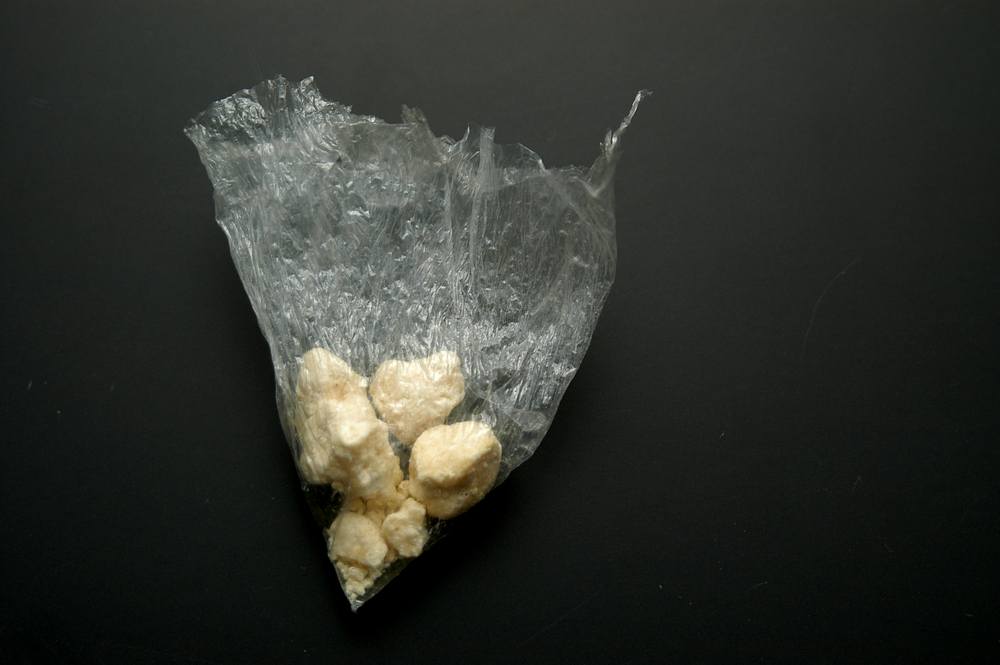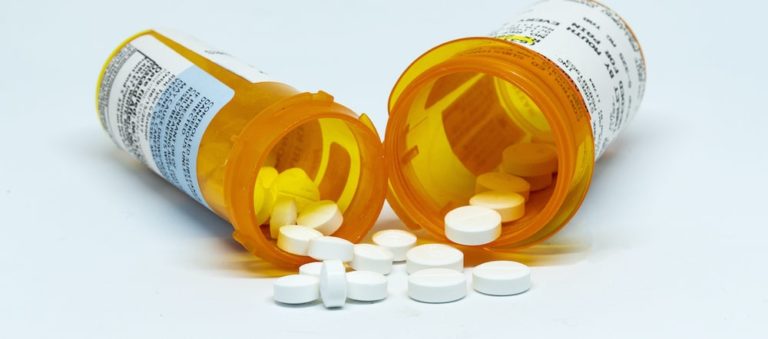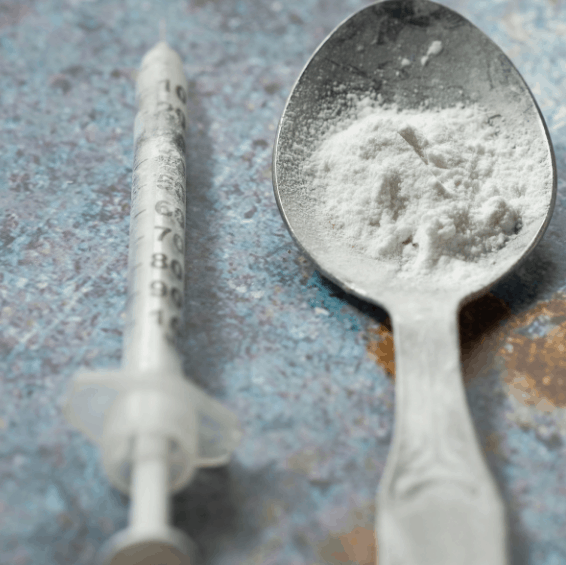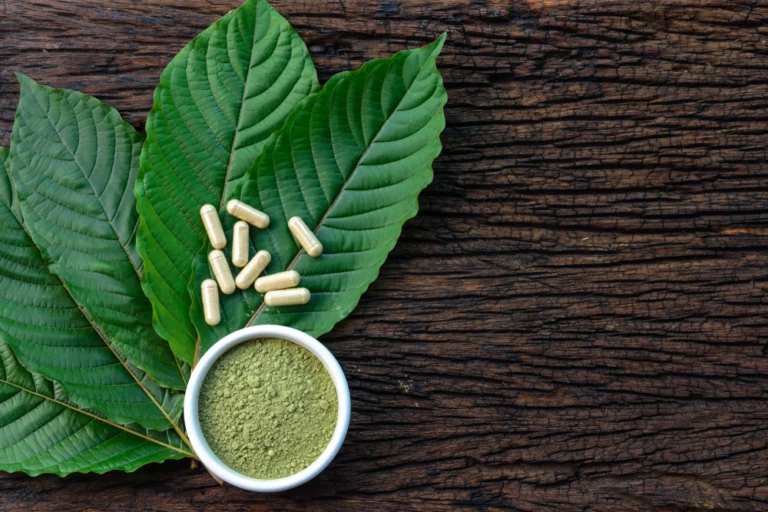If you are working diligently to stay sober, having just gone through a professional treatment program for a crack cocaine addiction, you are in a very vulnerable stage in your recovery. At this point, the ability to stay sober is dependent on following various relapse prevention techniques and relying on the support of your loved ones. However, addiction is a lifelong disease and there are many situations in life that might trigger a relapse. Continue reading for tips on how to stay sober after crack cocaine addiction.
What is Crack?
Crack cocaine is a very addictive and powerful variation of cocaine that is produced by transforming powdered cocaine into a form that can be smoked. It is known as “crack” due to the crackling sound it creates when it is warmed and smoked. This drug is produced by blending powdered cocaine with water, baking soda or ammonia, and then heating the mixture until it becomes a rock or crystal. This process removes the hydrochloride salt that is found in powdered cocaine, making it more potent and simpler to smoke. Crack cocaine is generally available in small chunks or crystals that can be divided into smaller pieces for smoking.

Crack cocaine yields similar results to that of powdered cocaine, but the impacts are usually more extreme and transient. It gives a sensation of elation and increased vitality, yet it can also bring about adverse effects such as uneasiness, suspicion, and delusions. Crack cocaine is very addictive and can result in physical and psychological dependence. It may also cause severe damage to the body, including harm to the heart and respiratory system.
Why is Crack So Addictive?
Many components contribute to the habit-forming nature of crack cocaine. One factor is the influence it has on the brain. When smoked, crack cocaine quickly enters the brain and produces a rush of pleasure and energy. This is due to the drug’s capacity to raise the amount of the neurotransmitter dopamine in the brain, which is connected to the reward and pleasure areas of the brain.
Nevertheless, the effects of the drug usually don’t last long and may only persist for a short time. This could encourage users to administer the drug multiple times in a bid to maintain those effects. This can be a contributing factor to addiction, as the brain gets used to the presence of the drug and starts to depend on it to bring about a sense of delight and gratification.
Besides its chemical makeup, the likelihood of someone becoming addicted to crack cocaine is also impacted by various factors such as the individual’s genetics, psychological state, and the atmosphere in which they live and the people with whom they are surrounded by. Those struggling with mental health challenges or whose family has a history of addiction are more likely to become dependent on crack cocaine.
It is important to point out that crack cocaine is a particularly powerful version of cocaine, and the danger of addiction is further heightened by the fact that it is usually inhaled, allowing it to reach the brain rapidly and generate intense results. This instantaneous onset of effects can also induce binging, wherein someone would use the substance multiple times in a short period.
The Challenge to Stay Sober: Quitting Crack Cocaine
Very few individuals are able to succeed in quitting crack cocaine without assistance. Withdrawal symptoms can be intense due to the fact that the brain must learn how to regulate dopamine production without the stimulant of crack. Even after the physical symptoms have subsided, the emotional and psychological withdrawal period can still be difficult and cause a person to relapse.

In addition, When dealing with addiction to opioid drugs, replacements like buprenorphine can be used to gradually reduce the dosage. Unfortunately, this is not the case for those struggling with crack cocaine addiction, as there are no replacement medications to assist in the process and they must simply quit the substance.
Stay Sober After Recovering From a Crack Addiction
If you have managed to successfully recover from crack cocaine abuse or addiction, realize that this is a huge achievement of which you should be proud! However, since addiction is a chronic disease, sustaining your sobriety takes continuous effort. The following are tips on how to stay sober once in recovery from crack addiction:
1. Join a Support Group
Organizations such as Alcoholics Anonymous (AA) and Narcotics Anonymous (NA) can provide a support system for individuals. It is possible to explore the various groups to find the best fit for you. There are smartphone applications that can help connect to those with similar experiences. These applications can offer a range of support options and the ability to get help from your peers or find a ride to a group meeting.
2. Don’t Replace Crack With Other Stimulants
Being hooked on crack cocaine is a cycle of smoking it to get high, and then crashing down hard when it wears off. After detoxing from it, many find themselves feeling lethargic and unfocused. As a result, some turn to smoking cigarettes and downing energy drinks in order to get that burst of energy they are looking for.
Even though both of these stimulants are legal, using them forces the brain to go through a cycle of energy rushes and crashes. This reminds your brain of what it feels like to be on crack. In order for your brain to truly heal, it needs time to rest from this daunting cycle.
It should also go without saying that you shouldn’t replace a crack cocaine addiction with another drug, such as amphetamines. Doing so does not equal the ability to stay sober. Taking someone else’s prescription puts your mind and body in jeopardy, and sends you back down the road of addiction.

3. Set Future Goals
Because you found the courage to take control of your situation and receive help for your addiction, you now have a new lease on life. Unfortunately, many people who are struggling with addiction don’t get a chance to make a better future for themselves. Now that you have made it through rehab, you have the freedom to do whatever you want (in a responsible way) and be whoever you’d like to be.
Take some time to evaluate what you would like to do next. Making goals and planning for the future is a great way to stay on track with your recovery. Make sure you keep track of the progress you make in your recovery and other areas of your life. You should be proud of each accomplishment you make and take the time to celebrate it.
4. Don’t Isolate Yourself
Staying away from people that you used to use crack cocaine with is always a good idea. However, it doesn’t mean that you should completely isolate yourself from everyone either. It is understandable that at times you will feel depressed and irritable on your journey to stay sober. However, keeping completely to yourself is bound to lead to a relapse.
If you don’t have positive people in your life to connect with, try reaching out to people who are in recovery with you to find support from people who can understand what you are going through.
5. Develop a Network of Support
Make sure to lean on trusted loved ones for encouragement, even if there have been changes in your relationships. Consider receiving professional help with this and other personal matters by attending counseling or family therapy sessions. Have some buddies who are not into alcohol that you can bring along to gatherings like parties or weddings. Furthermore, stay connected with your sponsor and contact them if you have any concerns or are feeling uneasy.

6. Avoid Places or Situations Where Crack Cocaine is Available
Everyone knows what it feels like to visit a familiar place and see people that you used to hang out with. You begin to get a feeling of nostalgia for the way things once were. Particularly, there is likely to be trouble if you know that the place you are going to visit has crack cocaine at your disposal.
Be honest with yourself. You likely will know before you leave the house if crack is going to be available in the place that you are visiting. Make a commitment to only go to places and be around people that don’t have crack cocaine in order for you to stay sober.
7. Develop New, Healthy Relationships
Once you have achieved sobriety, you may realize that some of your earlier relationships were detrimental and even destructive. Not only your drinking companions and drug suppliers can do you harm – but the ones closest to you can also contribute to a relapse. It might be that you have created a codependent bond or someone close to you, a family member, a companion, or even your employer, could have enabled your addiction unknowingly. Studies have demonstrated that if you maintain these types of detrimental relationships, you are more likely to relapse. To stay sober and avert a relapse, it is essential to form and nurture healthy relationships.
8. Find a New Hobby
Engaging in physical activity is an excellent idea as it increases the production of endorphins, which can boost your mood. Alternatively, you may consider volunteering your time to an organization dedicated to a good cause, such as an animal shelter or a children’s hospital. Doing something different can introduce you to people who share the same interests as you.

9. Adopt a New Way of Living to Stay Sober
Living life without crack cocaine means that your entire way of life should be transformed. At this point, you should be eating a healthy diet, and getting plenty of sleep. Your goal should be to adopt as many healthy habits as possible to bring your body back into balance.
Going on a long walk in the fresh air every morning is one example. Try clearing your mind by meditating or practicing yoga. Living your life in a different way will help take you down a more positive path that does not include crack cocaine.
10. Focus on Your Finances
Those who are on the path to overcoming an addiction to substances often have difficulty fulfilling their job duties, keeping a job, and taking care of their financials. If you were dependent on a substance for a while, you may have experienced money issues. Money struggles and difficulty obtaining and sustaining employment are common causes of relapse, but it is possible to make gradual progress and get your finances in order. Remember that your progress won’t occur overnight. Once you start working again, it is essential to plan your budget and take precautions to prevent relapse, as stress at work can be a relapse trigger.
11. Celebrate Your Milestones
Individuals involved in 12-step programs understand the significance of achieving milestones. It is customary to receive a plastic chip for making it to the one-year point and a bronze coin for commemorating the accomplishment. Marking and honoring the commitment to recovery can be beneficial for helping to stay inspired and recall why taking the courageous action to stay sober was decided upon. It is essential to ensure that the rewards do not involve any drugs or alcohol and to focus on things, occurrences, and activities that back the new, improved lifestyle.
Knoxville Recovery Center is Always Here for You
Do you feel that you have hit a wall in your recovery from crack cocaine? Has the ability to stay sober become too much for you to bear alone? We at Knoxville Recovery Center are here to assist you in any way that we can with relapse prevention.
Knoxville Recovery Center believes in a direct approach to treating addiction, with the goal of helping individuals lead healthy lives. Every client at our center has a custom-made program catered to their needs, to assist them in overcoming addiction and integrating back into society. Along with support from expert therapists, and other holistic treatments, people will participate in both individual and group sessions.
The professionals at Knoxville Recovery Center want people to know that they don’t need to go through this alone; we can help you or your loved one overcome the disease of addiction. We provide comprehensive programs and services to those in need, to help them recover from the addiction and have faith in a better future.
If you or someone you know is struggling, don’t hesitate to reach out or contact us to speak with specialists at Knoxville Recovery Center for assistance. You are not alone.








